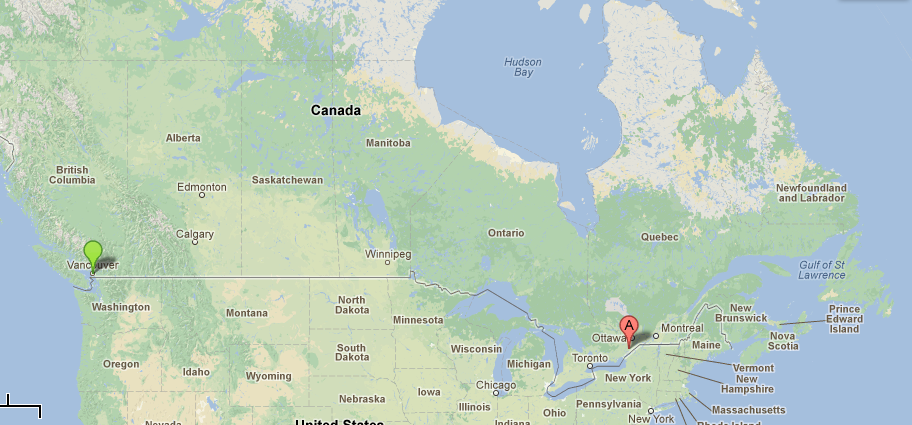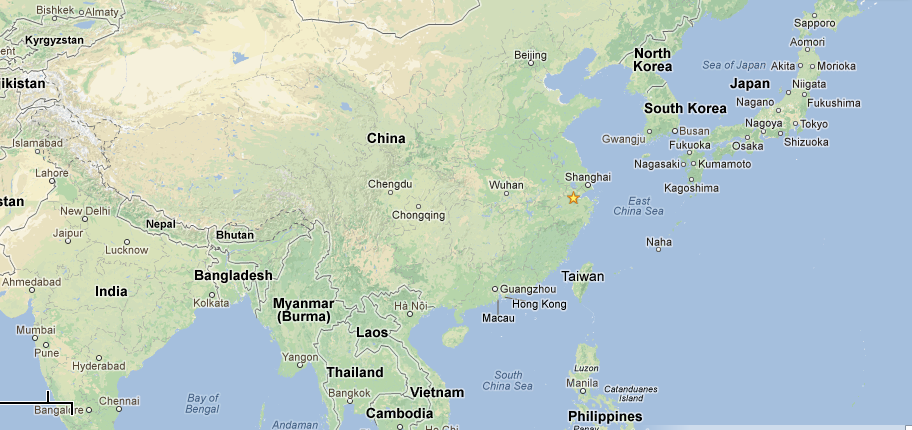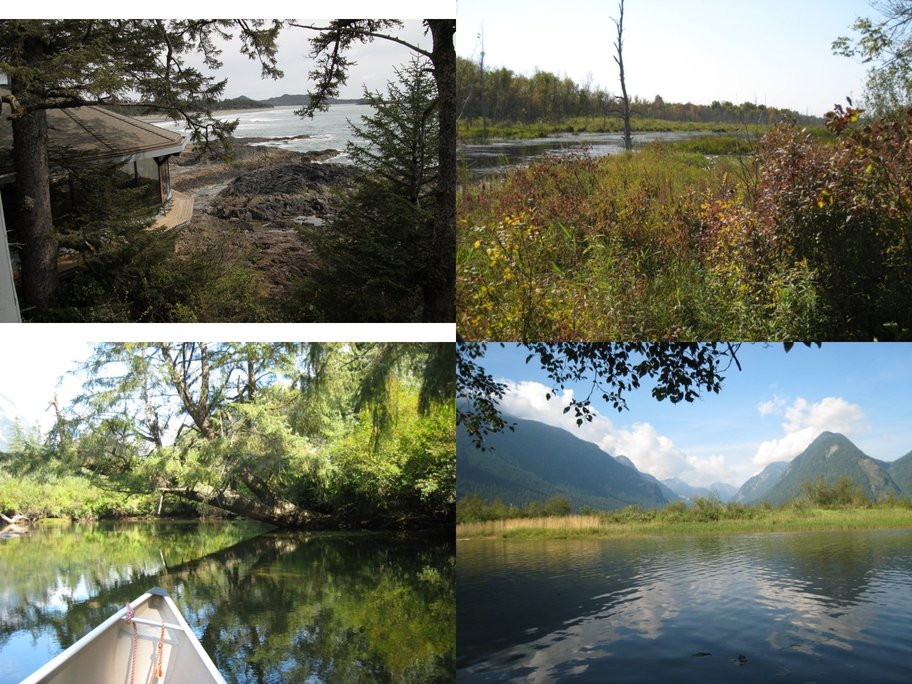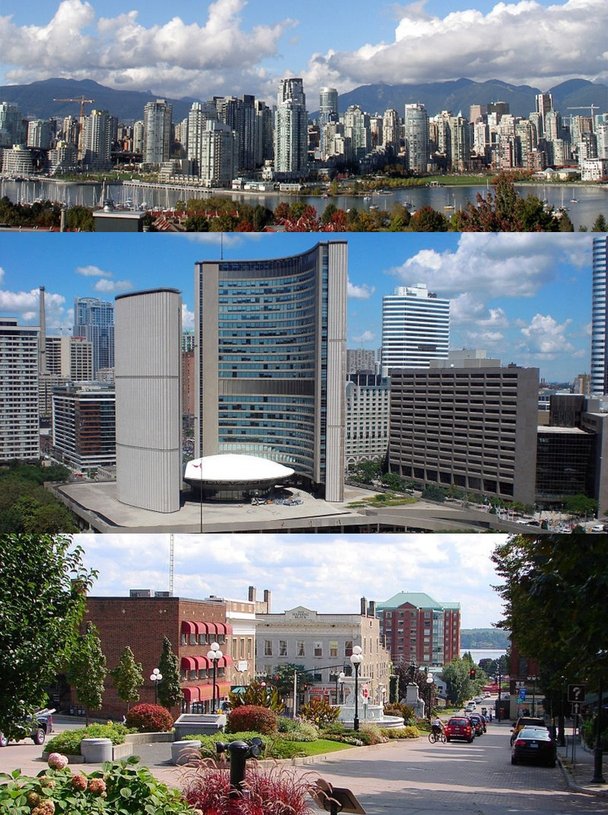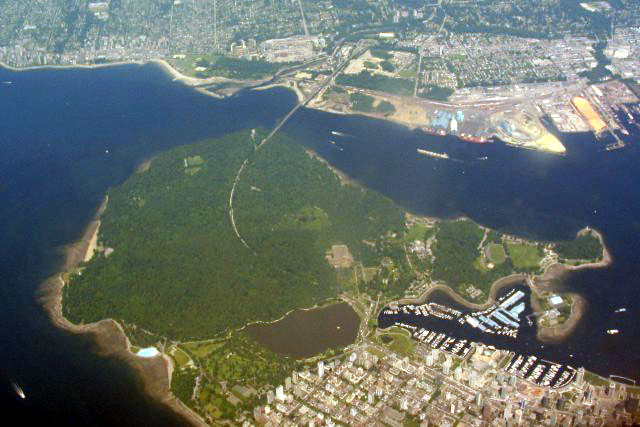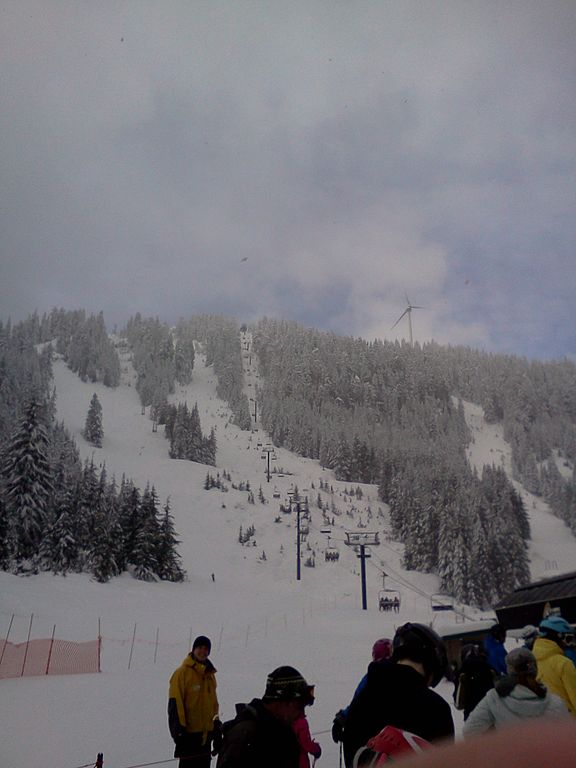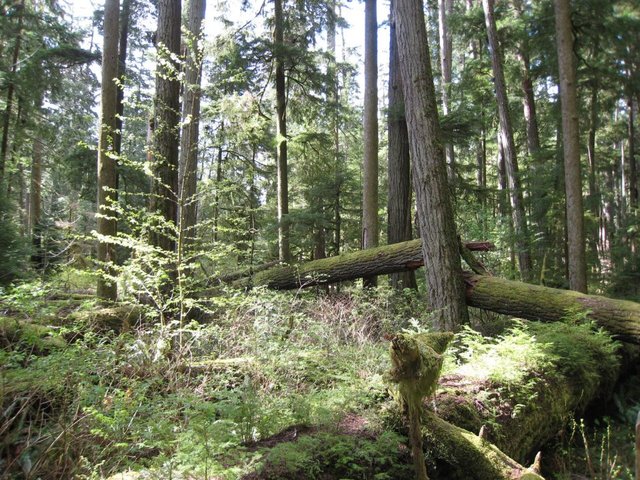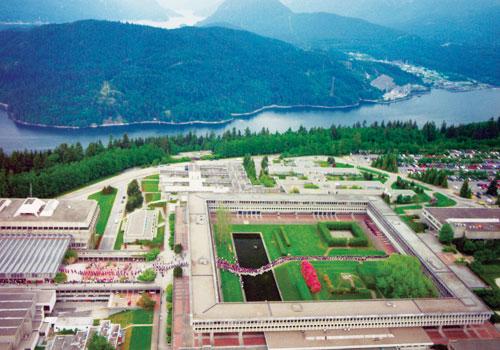Canada
Google Maps Canada The basics:
Land area: about 3% larger than China.
Population: about 33.5 million or 1.5 × Shanghai
Canada and China on the same scale:
So there's a lot of space with not many people in it.
Canada is about 80% urban, so even more space left with few people.
China: about 53%.
Canada actually looks like this:
But the parts where people actually live mostly look like this:
From Wikipedia 1 , 2 , 3 .
We're young.
Native populations there for >20000 years.
But the rest of the world didn't come to visit until maybe 400 years ago.
Vancouver has been a “city” since 1886.
We have a very famous neighbour.
About 75% of Canadians live within 150 km of the United States border.
Not because we love them that much, but because the farther north you go, the colder it gets.
In a lot of ways, Vancouver is more like Seattle or Portland than Toronto.
And Toronto is more like Buffalo or New York than Montreal.
They're closer too.
Driving to Seattle takes about 3 hours; Portland about 6.
Calgary: 10 hours.
Think about visas, etc.
Vancouver
Living in Vancouver ,
Google Maps Vancouver
“Vancouver” refers to two things: the city itself, and the Greater Vancouver Regional District (or Lower Mainland):
Based on Wikipedia File:GVRD - blank.svg .
About 42% non-white. according to StatsCan
18% Chinese.
10% South Asian (India, Fiji, Pakistan, etc)
4% Filipino
The “Chinese” number is split between (mostly) Hong Kong, Taiwan, and new immigrants from the mainland.
Cantonese is traditionally much more common in Vancouver, but that's changing.
Couldn't find any numbers, but I'm told most Chinese restaurants can speak Mandarin now: wasn't true 10 years ago.
Officially, Canada has two official languages: English and French.
But in Vancouver, French is less common than Cantonese, Mandarin, Fujian, Pujabi, or Filipino.
Weather in Vancouver
Winter in most of Canada looks like this:
From Wikipedia 1 .
Winter in Vancouver mostly looks like this:
From Wikipedia 1 , 2 .
In most of Vancouver, maybe 3–4 days of snow most winters, and it disappears quickly.
At SFU Burnaby, maybe 5–7 because of the higher elevation.
Mostly prepare for rain, not snow.
Snow stays on the mountains, where it belongs.
Some people find the long, grey, rainy season difficult to handle.
Summer in Vancouver is awesome.
Things the tour books think you should do:
src Stanley Park .
Go to the Vancouver Aquarium in Stanley Park.
Do Chinese stuff: Spring Festival, Dragon Boat, restaurants, etc.
Capilano or Lynn Canyon Suspension Bridge.
Skyride to the top of Grouse Mountain . See the two (captive) grizzly bears up there.
Go to Whistler to ski/board in the winter, or hike/relax in the summer.
Go to Steveston for a nice afternoon.
Things I think you should do:
src
Go to a Canucks (hockey) game.
Walk some of the trails around SFU .
Try skiing or snowboarding at one of the local mountains. (No need to go to Whistler your first time.)
Walk around Metrotown and then over to the Crystal Mall .
Go down to Richmond and see the Chinese part of the city.
Have a look at the other ethnic neighbourhoods too: Indian in Surrey, Filipino around Joyce Skytrain, Iranian in North Vancouver, Italian in North Burnaby,…
Spend the afternoon in a bar with some friends (possibly on the patio in the summer). Get a little drunk. (A little!)
Have a picnic in a park (Burnaby Mountain park?)
See the city at night : from Grouse Mountain, Jericho Beach, Cypress lookout, or…
Spend an afternoon at Granville Island .
Eat the food: not many cities in the world have well-made food from so many places.
Seriously, don't be afraid to try the food.
Don't know what to order? Find somebody to go with you and help you figure it out.
… like me.
Or ask the waitress “I don't know what to order… what do you think I should try?”
But don't forget to tip in restaurants: 15% extra on top of the bill.
Living in Vancouver
Where to live?
Easiest choice: residence.
On campus, easy to arrange, meet lots of people.
But…
More expensive, must buy cafeteria meal plan, far from the rest of the city.
You can live there for a semester or two and then move out.
Off campus living?
Cheaper, closer to other stuff.
Have to cook for yourself, harder to meet people.
And you have to actually find an apartment. Craigslist?
Many houses in north Burnaby near campus have basement apartments that rent fairly cheap.
Getting around:
SFU students get a transit pass that will take you anywhere on the buses/Skytrain.
Make use of it and explore the city.
Buses leave campus every 5–10 minutes most of the day to various useful spots.
Including the closest Skytrain station .
Bikes?
Yes, but remember that Vancouver is a lot bumpier than Hangzhou.
Especially Burnaby Mountain where SFU is: 250 m elevation difference bottom to top.
But most buses have bike racks to save you the long rides.
Getting a car?
I wouldn't. The buses are free (for you) and easy.
If you're getting a used car, get it inspected before buying.
Consider driving lessons there: the rules that people actually follow are very different.
Taxis
Annoyingly expensive.
They don't just hang around: if you want one, call the company and they'll send one to you.
Groceries and food
Because there's such a large Chinese population, you can find just about any Chinese products/ingredients you want.
But maybe not in every grocery store.
T&T is probably your best bet (Metrotown or First Ave ).Also the markets in the Crystal Mall .
And many smaller markets more convenient to SFU (Hastings Street in Burnaby or near Lougheed Mall).
Chinese restaurants
An average Chinese restaurant somewhere in Vancouver will be better than an average Chinese restaurant anywhere else outside of China.
… but still not maybe great: get some recommendations of good places.
Most restaurants are Cantonese style because that's who got there first.
Other Chinese cuisine is out there, but you might have to look a little.
The best Cantonese food in Vancouver will be better than anywhere else, possibly including Hong Kong and Guangzhou.
Other restaurants
Sushi: you can't walk two blocks without passing a sushi place.
Korean: many places, particularly around Lougheed mall near campus.
Italian: North Burnaby is traditionally an Italian neighbourhood. Look along Hastings St.
Other western: many options.
Other Asian: Thai, Filipino, Malay, …
Find a local friend or two.
Better Canadian experience; learn about us; they know about stuff in Vancouver you won't find on your own;…
Personal safety.
SFU
SFU is fairly new University: founded in 1965.
Well-ranked within Canada.
But honestly, that doesn't matter: we don't have the same devotion to rankings as the Chinese.
Employers know that SFU CS grads are good, so they hire them.
SFU has three campuses:
Burnaby: the main campus, where you will mostly be.
Downtown.
Surrey.
SFU students can take courses at any campus.
In particular, note the evening offerings downtown, and Software Systems (≈Software Engineering) in Surrey.
It's pretty if you look at it from the right angle.
From Wikipedia 1 .
Unfortunately, you don't spend much time looking from there.
There are a few places on campus with a view over the Burrard inlet and mountains: don't miss those.
Co-op: you want to do it. Seriously.
Spend one or two (probably two) semesters working for a company in a CS-related job.
Make around $8–12k (24–36000元) in a semester.
Get work experience that makes you much more employable at the end.
(Remember how I said western employers aren't as impressed by University rankings?)
If you're in Vancouver you can take a course (in the evening, probably) while doing co-op.
SFU offers courses all year: September–December, January–April, May–August.
Maybe a few less courses in the summer.
So, you can do co-op any semester: other schools are summer-only, so may find more interesting jobs in the fall/spring.
Course load at SFU is typically lower than ZJU.
3–5 courses each semester.
But one “course” is a little bigger.
And you're expected to learn more than how to do well on the test.
No cohort system in course selection.
Take the courses you want when you want to.
So keep an eye on the degree requirements: make sure you're not missing something.
You should see an advisor, at least every few semesters, to help keep you on track.s
Four years to graduate? Why not five? Why not six?
A lot of SFU students take too long to finish.
But if you do four co-op semesters and have an amazing resume at the end, is that bad?
It's not what Chinese moms want to hear, but it's our way.
The overall message should be clear: SFU is less formal and more relaxed than ZJU.
… and in some ways than other Canadian universities.
Use the choices you have to get the most out of the experience.
Become someone who is interesting (and has an interesting resumé/CV).
There is plenty of help available for you
The academic advisors and co-op advisors can help with course selection and co-op.
Talk to them.
Listen to them.
I have heard students say many things starting with “My friend told me that…”. All wrong.
There are lots of clubs at SFU .
Good way to make friends and have some fun.
Free or cheap.
Good courses to take?
Food on campus?
After You Graduate
Should you do a master's?
Co-op experience will make a job search much easier.
Tech industry in Vancouver
What the new Facebook office means for the Vancouver tech scene Twitter opening ‘global centre of excellence’ in Vancouver Microsoft Careers in Vancouver , Electronic Arts Vancouver , Mozilla Vancouver office , Pixar Vancouver , Amazon Vancouver , SAP Vancouver , IBM Vancouver .Don't forget the smaller companies. Mobify , Blast Radius , Habanero Consulting , Radical Entertainment , Piranha Games , A.C.R.O.N.Y.M. Games , A Thinking Ape , and hundreds more.
Startup incubators: Growlab , Wavefront , SFU Venture Connection .
TED headed to Vancouver in 2014 Seattle is a few hours away: Microsoft, Amazon, Valve, …
San Francisco is only a few hours more: Apple, Google, LinkedIn, Facebook, Twitter, …
This Vancouver time lapse video .
